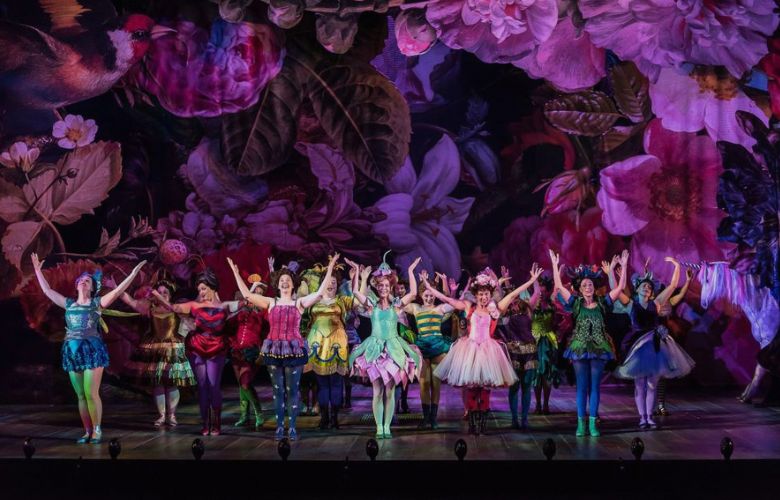
The BBC has this week highlighted the outrage and wider reaction to the English National Opera funding cuts. As previously reported by TheatreArtLife in November, there was a shocking change to the funding distribution from Arts Council England, which not only slashed the prestigious company’s funding, but also suggested they relocate from London to the northern city of Manchester.
While it seemed apparent at the time of the funding announcement that many would be shocked, the discussion has now taken hold in the weeks that have followed about how this would work in a practical sense, what this would look like, and how creatives, staff, and audiences feel about it in the aftermath. To summarise, the funding to the English National Opera were told by Arts Council England that they would be receiving £17 million split over the next three years, as opposed to their £12 million previous annual grant, and they would receive nothing if they did not move their headquarters out of London. The Arts Council proposed Manchester as a new base, however according to the BBC, this was not discussed with government, the existing cultural organisations in Manchester, nor English National Opera prior to the announcement.
The BBC reported a wide-ranging follow up piece on the issue, noting that the conversation has got louder across the UK, with everyone “from the Houses of Parliament to daytime TV” chiming in on the matter.
UK Politicians appeared uncharacteristically united that the plan will have a negative effect: Caroline Dinenage (the former culture minister) called it “some form of crazy tokenism”, Harriet Harman (former shadow culture secretary) expressed that it was “baffling and an absolute shame”. Perhaps ENO chief executive Stuart Murphy summarised the collective sentiment best in his analogy, whereby he explained:
“I think its headquarters will definitely be outside London. And if we’ve got enough money, we can definitely do that for the Arts Council. But we definitely need a presence in London.
It’s like saying, ‘I really want Formula 1 in Leeds.’ But actually, it’s not Formula 1, it’s a bunch of go karts. ‘OK, that’s not quite what I had in mind.’”
Additionally, the discussion has proved to add stress to relations with the company whereby the ENO has had to clarify that there is no issue with ‘disapproving’ of Manchester ‘looking down’ on other cities and locations in the north or outside of London, that the dissatisfaction is at the treatment and way in which the funding cut and relocation suggestion was given.
While Manchester is now home to a BBC hub for radio, television, and has a classical music presence in the city, there are several northern opera companies that already produce shows regularly in Manchester, most notably The Royal Northern College of Music (RNCM) and Leeds-based Opera North.
The BBC reported that Opera North chief executive Richard Mantle explained:
“Moving the ENO to a location that is already served by an opera company would be a nonsense. Nobody’s talked to me about it. The Arts Council hasn’t discussed it with us at all. So, it’s still, in my view, a fictitious idea. I just think it’s been one of the most ill thought-through own goals the Arts Council could possibly make.
The costs and practicalities of moving the ENO need to be thought through first. And if you do the cost benefit analysis, you’d probably find actually it’s best to keep where it is.”
Shortly after the initial announcement was made in November, the chief executive of Arts Council England Darren Henley published an op-ed piece in The Guardian, where he summarised:
“I know the ENO decision seems stark. I know nothing can take away the pain of the artists, performers, technical teams and audiences who love the company and its home at the Coliseum. But if we consider the future of opera and classical music more generally, it is clear some things must change. There will always be a place for the grand opera currently staged by the ENO, Royal Opera House (ROH), Opera North, Glyndebourne and other “country house” opera companies: the swelling overtures, glorious sets, rousing choruses and breathtaking arias create an overwhelming, eternal sense of awe. But the Arts Council also needs to be focused on the future of opera. A new generation of audiences is embracing opera and music theatre presented in new ways: opera in car parks, opera in pubs, opera on your tablet. New ideas may seem heretic to traditionalists, but fresh thinking helps the art form reimagine itself and remain exciting and meaningful to future generations of audiences and artists.”
English National Opera’s Stuart Murphy is hoping that the conversation supported by a petition with 78,000 signatures at the time of writing will make a positive impact on the situation, and lead to an outcome that all parties are happy with.
Accessibility At The Smith Center Series: Part One
James “Fitz” FitzSimmons Interview: The Boys In The Band On Netflix


Michelle is a musician and composer from the UK. She has performed across the UK and Europe and is passionate about arts education and opportunities for women and girls.
Read Full Profile© 2021 TheatreArtLife. All rights reserved.

Thank you so much for reading, but you have now reached your free article limit for this month.
Our contributors are currently writing more articles for you to enjoy.
To keep reading, all you have to do is become a subscriber and then you can read unlimited articles anytime.
Your investment will help us continue to ignite connections across the globe in live entertainment and build this community for industry professionals.